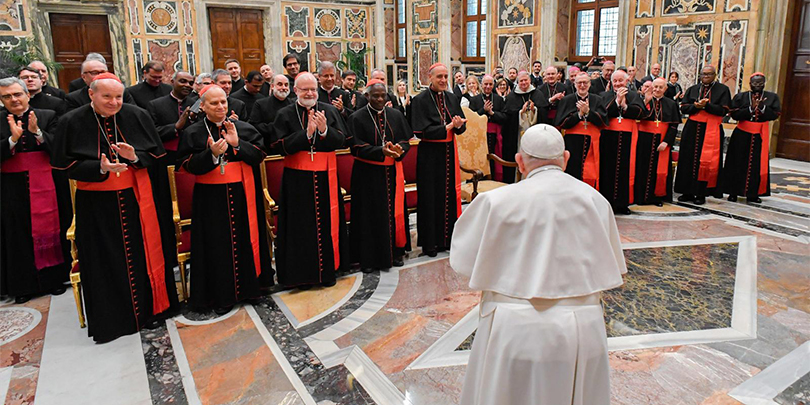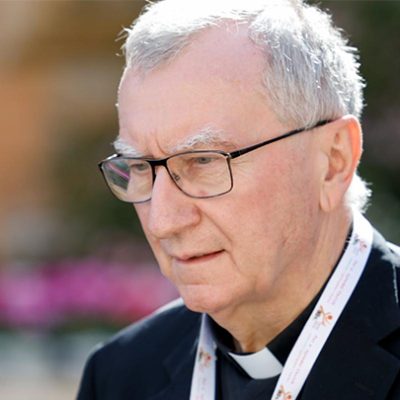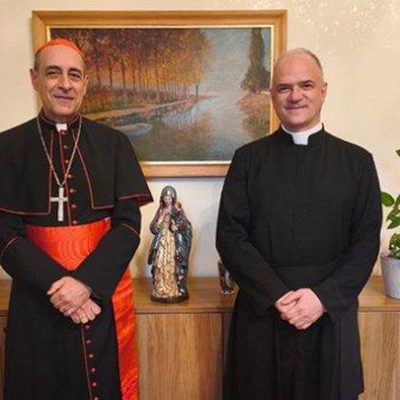
Pope Francis has again insisted that an informal blessing of a gay or other unmarried couple is not a blessing of their union but a sign of the Church’s closeness to them and its hope that they will grow in faith. Source: CNS.
“The intent of ‘pastoral and spontaneous blessings’ is to concretely show the closeness of the Lord and the Church to all those who, finding themselves in different situations, ask for help to carry on – sometimes to begin – a journey of faith,” Pope Francis said on Friday as he met members of the Dicastery for the Doctrine of the Faith.
The full membership of the dicastery was holding its annual plenary meeting at the Vatican.
While Pope Francis’ remarks to the members focused on their discussions about the sacraments, human dignity and faith, particularly the centrality of evangelisation, he also mentioned Fiducia Supplicans (Supplicating Trust), which was published by the dicastery and signed by Pope Francis on December 18.
The document said that while the Church “remains firm” in teaching that marriage is a life-long union between a man and a woman, in certain circumstances priests can give non-sacramental, non-liturgical blessings to “couples in irregular situations and same-sex couples without officially validating their status”.
Pope Francis told dicastery members that he wanted to make two points about the document. The first, he said, was that “these blessings, outside of any liturgical context and form, do not require moral perfection to be received”.
Secondly, he said, “when a couple spontaneously approaches to ask for it, one does not bless the union, but simply the people who made the request together. Not the union, but the people, taking into account, of course, the context, the sensitivities, the places where people live and the most appropriate ways to do it.”
FULL STORY
Blessings are signs of Church’s closeness, Pope says (By Cindy Wooden, CNS via USCCB)
RELATED COVERAGE
Bishop of Darwin responds to Vatican’s same-sex blessing call (NT News)
Pope Francis: Blessings don’t require ‘moral perfection’ (CNA)






